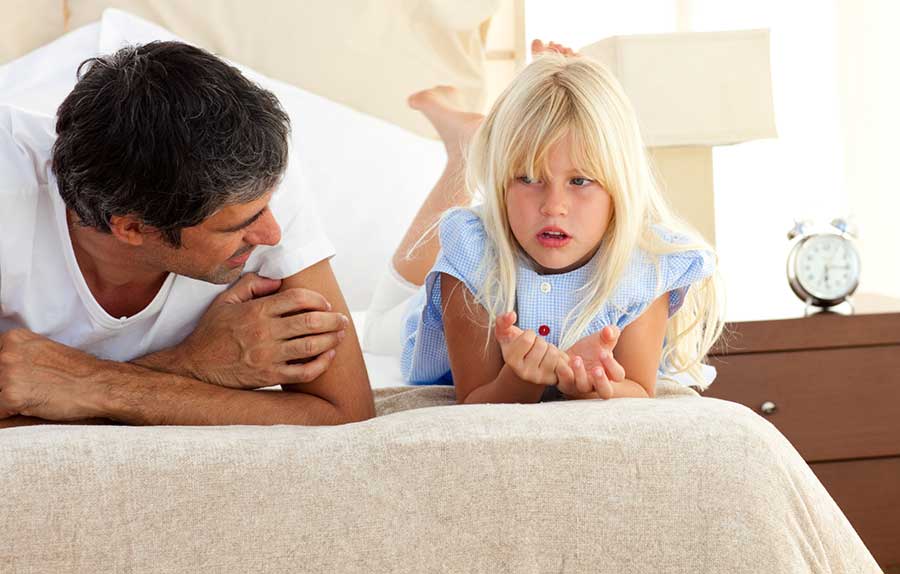By Dr. Sarah Kerr, PhD. Death Doula The Centre for Sacred Deathcare
Young children are naturally curious about death, whether it is the death of a pet or the concept of mortality in humans, and it’s important to hold space for these explorations.
As adults, our role is to help children find a way to hold and be with this life experience, and to prepare them for the deaths that they will experience in their lives.
Here are nine core concepts to keep in mind when talking to young kids about death:
1. Be Neutral
Treating death as a taboo subject teaches children that death is to be feared. Instead, we want to help kids understand that being with death is difficult, because it brings up so many difficult emotions, but it is not dangerous or something to be avoided.
Death is hard and sad. The feelings that happen around death are hard and sad. But we need to learn how to talk about all of it. When your child sees that you stay calm and open when they ask you about death, they learn that it’s safe to bring other difficult or confusing feelings and concerns to you.
2. Be Informative
Kids have very real questions, and they need clear, straightforward answers.
3. Physical Answers
Let your child know that people die when they are old, or very sick, or very badly hurt. It’s important to stress the “very”—we don’t die from being a little sick (as in catching a cold in the winter) or from being a little hurt (as in falling and scraping our knees).
You can also help your child understand death by observing it in nature. Point out dead plants, dead bugs, or dead animals, and discuss what has happened to them.
4. Emotional Answers
Explain to your child that death can bring up all kinds of emotions, and that it’s okay to feel those emotions.
Model holding space for the full spectrum of your child’s emotions, as well as your own. Share your grieving practices. Do you take time in nature? Make art? See a grief counselor? Journal? Make space for big, messy and loud emotions? Help your child find the practices that will work for them.
5. Spiritual Answers
Children may wonder what happens to us after we die. The answer to this looks very different for every person and every family.
Share your family’s values or beliefs, and explain that there are many beliefs in the world. You can start these explanations with “some people believe that…”. This will create space for your child to begin to explore their own beliefs.
6. Be Direct
Avoid using euphemisms when talking about death and dying with children. Young children understand things in very literal and concrete ways.
Euphemisms like “passed on”, “crossed over”, and “transitioned” are just more confusing for kids. Especially avoid the phrase “gone to sleep”, as this can make children fear falling asleep. Instead, be direct, and use the words “dead” and “died”.
Stress that death is permanent. Young kids don’t understand abstract concepts like “forever”, so it’s important to also explain this using very clear language. Make it clear, in terms that your child will understand, that when people die, they don’t ever come back.
7. Be Age Appropriate
Cater your answers to your child’s understanding level, and follow their lead. Remember that their understanding can be built over time.
Your child may ask the same questions again and again. This is also normal. They are integrating this big, new information into their lives. Simply continue to follow the principles outlined here—stay neutral and direct, and hold space for them to learn and process.
8. Be Honest
Trying to “protect” your child by fudging the facts, while it comes from a place of caring, can actually create more anxiety than the truth would.
Children have vivid imaginations. If they’re not given a clear, honest explanation of what has happened to a person (or a pet) who has died, and why that has happened, they will often make up a story in order to fill in the gap.
They may start to believe that their thoughts or actions caused the death. They may start to believe that they can make the person come back.
When they ask, explain to your kids that you will die, and they will die. And yet this is okay. Explain that we, in our families, and in our communities, are here to support each other through our grief. There are tools for grieving a loss, and we share them with each other.
9. Be Confident
When a young child is beginning to learn about death and loss, they are naturally going to feel unsettled. What they need to know is that they will be okay, that you have this handled, and that they will be looked after.
This doesn’t mean that you can’t cry or be sad. In fact, this is a good time to model how to be present with these normal, natural, big feelings. Teaching your child how to grieve is as important as teaching them about mortality.
The task is to hold an attitude of capable confidence. Let your child know that death is a really difficult thing, but that you and the other adults in their life know how to meet it. That you will support them, and that you will teach them the skills they need to navigate it well themselves. extra50plus










